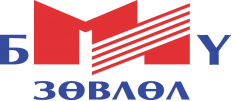Established by the Government of Mongolia in 1998, the Mongolian National Council for Education Accreditation (MNCEA) is an independent external agency. Its primary objective is to improve the quality of higher and technical-vocational education in Mongolia. The MNCEA is responsible for ensuring policy coherence in the development, implementation, quality assurance, accreditation, and recognition of qualifications. It operates under several laws, including the "Law on Education," "Law on Higher Education," "Law on Technical & Vocational Education," and "Rule of the Quality Assurance Agency." Institutional accreditation for higher education institutions is a mandatory requirement. Program accreditation is obligatory for prioritized and in-demand programs, while participation in other programs within the higher education sphere is voluntary. Similarly, institutional accreditation for Technical and Vocational Education and Training (TVET) institutions is compulsory, and program accreditation for the prioritized and in-demand TVET programs is also mandatory, while participation in other programs is considered voluntary.
The MNCEA currently has 34 officers and coordinators who are responsible for accrediting Higher Education Institutions (HEIs) and TVET programs, as well as secondary and preschool education. This includes oversight of foreign programs and curriculums, and credential evaluation for qualification recognition. The Council also engages more than 500 external evaluators to assess higher education institutions and educational programs upon request.
In 2023, the Mongolian government updated and approved the function and structure of the MNCEA with the newly ratified law on education. Consequently, the agency aims to engage in an international joint accreditation initiative to promote national accreditation and implement a globally recognized accreditation process. The MNCEA plans to collaborate with international accrediting bodies, agencies, and commissions. Additionally, the new law stipulates that secondary and pre-school kindergarten, which are offering foreign programs such as IB and Cambridge shall be accredited by national accreditation.
Institutional accreditation for higher education institutions is a mandatory requirement. Program accreditation is obligatory for prioritized and in-demand programs, while participation in other programs within the higher education sphere is voluntary. Similarly, institutional accreditation for Technical and Vocational Education and Training (TVET) institutions is compulsory, and program accreditation for the prioritized and in-demand TVET programs is also mandatory, while participation in other programs is considered voluntary.
